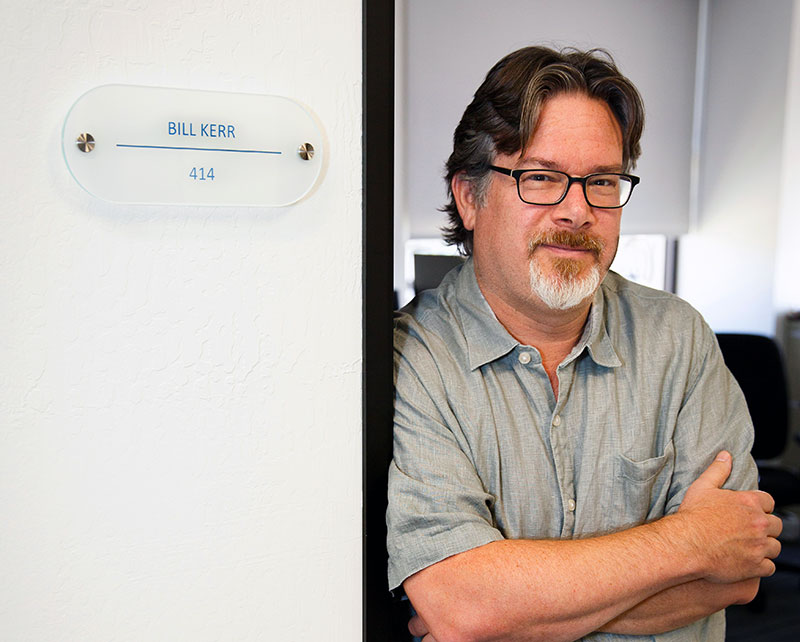
William C. Kerr, Director, National Alcohol Research Center
ARG has been awarded a National Institute on Alcohol Abuse and Alcoholism (NIAAA) grant to support the continuation of the National Alcohol Research Center. The funding will allow the Center to further its work through to 2026.
The grant will support two core components and four research projects that focus on addressing alcohol-related health disparities in order to identify and reduce the effects of economic or social disadvantage on public health outcomes.
The Administrative Core, led by William C. Kerr, provides management, direction, and coordination of the Center and its enrichment and training programs that support emerging investigators. The Statistics and Data Services Core provides statistical and data-related services to the Center’s work.
The four research projects, directed by investigators from across the ARG community, include:
National Alcohol Surveys: Advancing Epidemiologic Analyses of 21st Century Drinking: The National Alcohol Survey (NAS), a cross-sectional alcohol-epidemiological survey conducted every five years, will field a 2024 survey which aims to deepen the understanding of how to collect high-quality survey data, including biological samples. Trends, disparities and the addition of biological samples will enable researchers to assess alcohol’s effect on psychological distress and address disparities in these effects. This next wave will see the NAS celebrating 45 years of monitoring our nation’s drinking patterns and its associated problems. The project is co-directed by Priscilla Martinez and William C. Kerr.
Health Disparities in Alcohol Use and Other Risk Behaviors after the Onset of Cancers and Cardiovascular Disease-Related Conditions: This project is a continuation of the 2016-2020 Health Disparities Project focusing on alcohol’s role in health outcomes. In this project, we shift our attention to patterns of drinking and other health risk behaviors among individuals with diagnosed health conditions focusing on diabetes, hypertension, heart/coronary problem, and cancer as well as multi-morbidity among these conditions. William C. Kerr and Won Kim Cook co-direct this project.
Quality of Alcohol-Related Care Received: Missed Opportunities, Disparities and Impacts of Health Reform: Unhealthy drinking and alcohol use disorder (AUD) together affect more than one of every four American adults and are a leading cause of preventable death, with tremendous economic and social costs. This study seeks to increase understanding of gaps in the quality of alcohol-related care received among unhealthy drinkers and persons with AUD, and how this is changing with health reform. Based on analyses of national survey and specialty treatment data, study results may help to stimulate efforts of clinicians, healthcare administrators, treatment providers, and policymakers to improve access to quality alcohol-related care for all. Nina Mulia directs the project.
High-Intensity Drinking over the Life Course: Identifying High-Risk Subgroups through Event-based and Population-Based Approaches: This work will broaden our knowledge of both the precursors to and the outcomes of high-intensity drinking (HID) at various points over the life course, also estimating the public health burden attributable to high alcohol intake. This research project is poised to improve HID measurement, track HID trends over time, and enhance theory by contextualizing intensity within an individual’s overall drinking pattern, drinking history, event-level characteristics, and individual and environmental influences. Finally, this research will aid in improving prevention and treatment strategies by better identifying suitable target subgroups and provide information to help shape design of future interventions aimed at reducing harmful drinking intensities among a range of adults, from young adults to middle-aged and older Americans. The project is co-directed by Camillia K. Lui and Thomas K. Greenfield.
ARG’s Alcohol Research Center remains dedicated to disseminating its findings to those who can benefit from its research, including policymakers, practitioners and the public. NIAAA has funded the Center since 1977.
About NIAAA’s Alcohol Research Centers
From the NIAAA website: NIAAA has established a nationwide program of Alcohol Research Centers. The Alcohol Research Centers’ Program complements and is interrelated with all other research support mechanisms and scientific activities that investigate the causes, diagnosis, treatment, control, prevention, and consequences of alcohol abuse and alcoholism.
The Alcohol Research Centers provide long-term support (typically 5 years) for interdisciplinary research that focuses on particular aspects of alcohol abuse, alcoholism, or other related problems. This program encourages outstanding scientists from many disciplines to provide a full range of expertise, approaches, and advanced technologies for developing knowledge in these areas. A primary goal of each NIAAA-funded Center is to become, through excellence in scientific research, a significant regional or national research resource. In addition, each Center affords research training opportunities for individuals from various disciplines and professions.





